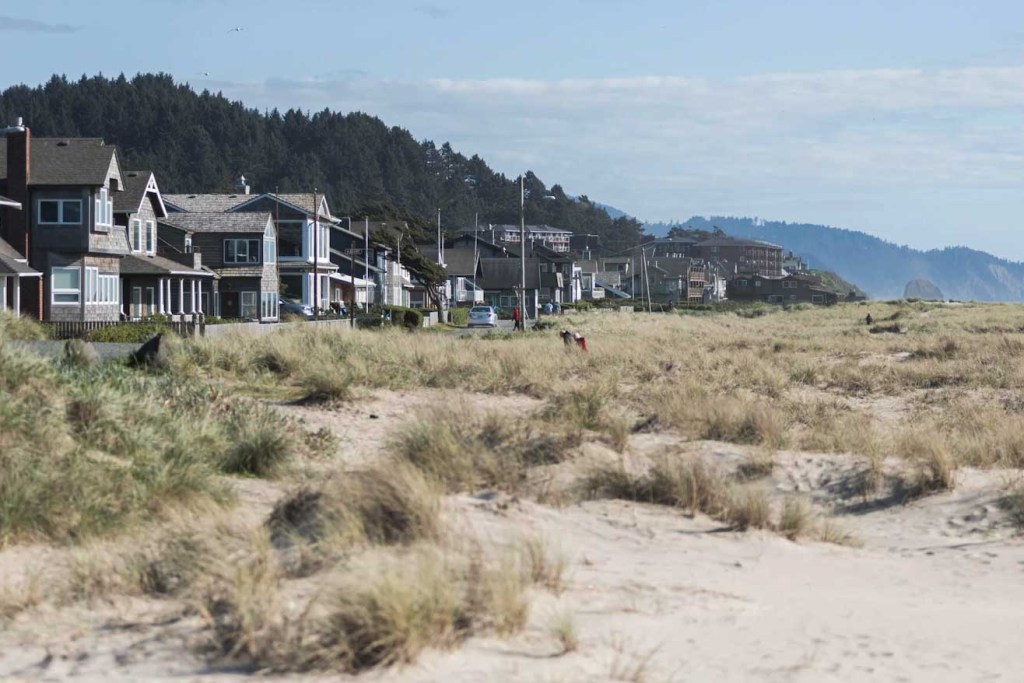Vacancies on the rise at North Coast hotels
Published 12:39 pm Monday, April 7, 2025

- Hotels and motels across Cannon Beach are experiencing low occupancy rates.
Canadians protest by staying home
In the midst of what is usually a busy season in Cannon Beach, hotels are seeing significant vacancies.
Lodging operations across town have yielded lower occupancy rates. Owners point to some typical reasons: weather, increased expenses, economic uncertainty and one new factor — an abrupt absence of Canadian guests.
Trending
Greg Swedenborg, of The Waves Cannon Beach, told The Astorian that vacancies at his properties persisted throughout spring breaks for Oregon, Vancouver, British Columbia and, most recently, Olympia and southwest Washington.
Spring breaks for Seattle and Tacoma schools begin in less than two weeks, but the hotel is seeing a reservation pace slower than it has been in the last three years, further dampening expectations.
Everyone has opinions as to why, Swedenborg said. One factor of many is the influence of weather, as well as news of dangerous roads and worries about wastewater.
“While I don’t think these move the needle, we do get guests calling to ask ‘Is it safe to go to the beach?’ ‘Will you have power or will businesses be open?’ etc.,” he said.
But as The Waves gets 20% of its annual revenue from Canadian guests, the 320 nights’ worth of cancellations from Canadians in March alone — with more in February, into April and beyond — were striking.
Erik Ostrander, who manages the Sea Breeze Court with his wife, said the local lodging industry hasn’t seen a situation like this one in well over a decade.
Trending
While the motel saw near-full occupancy during spring breaks before the COVID-19 pandemic and completely full occupancy post-COVID, the property was almost empty during this year’s spring break season.
“We have had a lot of weather that is possibly a contributing factor,” he said. “I know none of our Canadian guests have returned.”
Though it’s usual for the motel to see fewer Canadian guests in spring than in summer, Ostrander said they have also canceled all their summer reservations.
One Canadian patron who recently attempted to travel to the motel spent over two hours being questioned at the U.S.-Canada border before canceling future reservations.
Ostrander also cited uncertainty in the financial markets; people are paying closer attention to the conditions of their 401(k) accounts and the stock market.
“They’re watching those numbers and seeing them plummet and making decisions to hold on to their money for the time being,” he said. “And so I think they’re just not traveling to Cannon Beach because of that. And it’s not just Cannon Beach. From what I understand, the entire coast is down in occupancy.”
The Seaside Visitors Bureau said that although the city was still seeing many tourists, concern over lower occupancy rates was “certainly a sentiment we’ve heard in town this spring break.”
“It’s too early to know for sure because the typical measurement for hotel health from our perspective is the quarterly bed tax,” a spokesperson wrote in an email, adding that the popular tourist destination was also seeing fewer Canadian guests.
Swedenborg suggested that inflation, layoffs and pending economic instability play a significant role in cancellations and absences, with guests telling staff they were taking a year off from traveling, or that things had just gotten too expensive.
Patrick Nofield of Escape Lodging in Cannon Beach also told The Astorian that his coastal properties had seen an abnormal amount of vacancies in February and March, and attributed it to regional, state and national concerns.
The Consumer Confidence Index, he said, is at a low point. As a result, discretionary spending has slowed.
“Consumer confidence declined for a fourth consecutive month in March, falling below the relatively narrow range that had prevailed since 2022,” Stephanie Guichard, Senior Economist for Global Indicators at The Conference Board, said in a statement.
The Expectations Index, based on consumers’ short-term outlook for business, income, and labor market conditions, is at the lowest level in 12 years, well below the threshold that usually signifies a coming recession.
Nofield also cited tariffs as a factor in lowering Canadian patronage. President Donald Trump recently imposed a 10% tariff on all countries in order to “strengthen the international economic position of the United States and protect American workers,” according to a White House news release.
“We really need a strategic direction for our country,” Nofield said in an email. “And to that end I believe we will realize stability in our economy. As of now there is significant uncertainty.”









